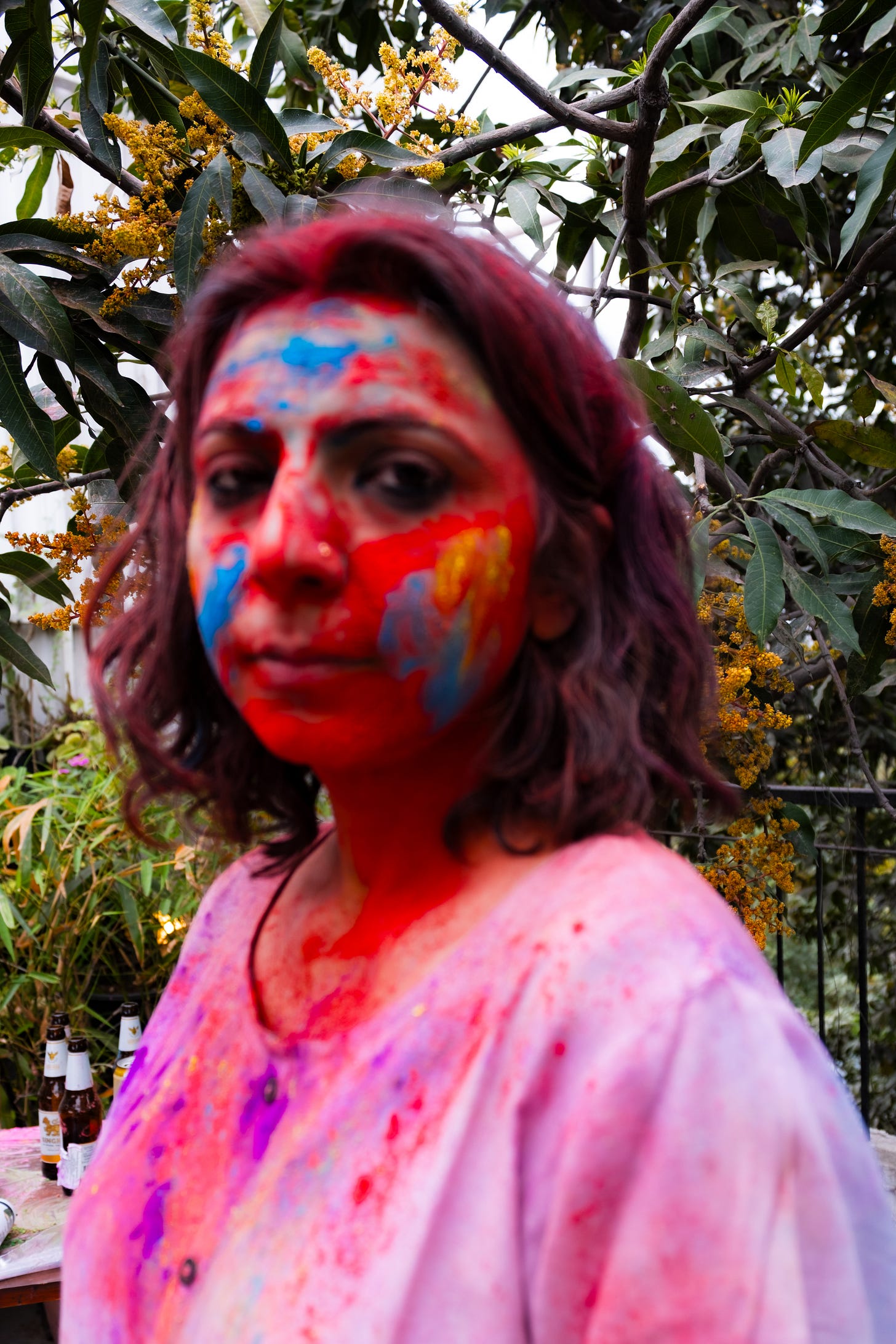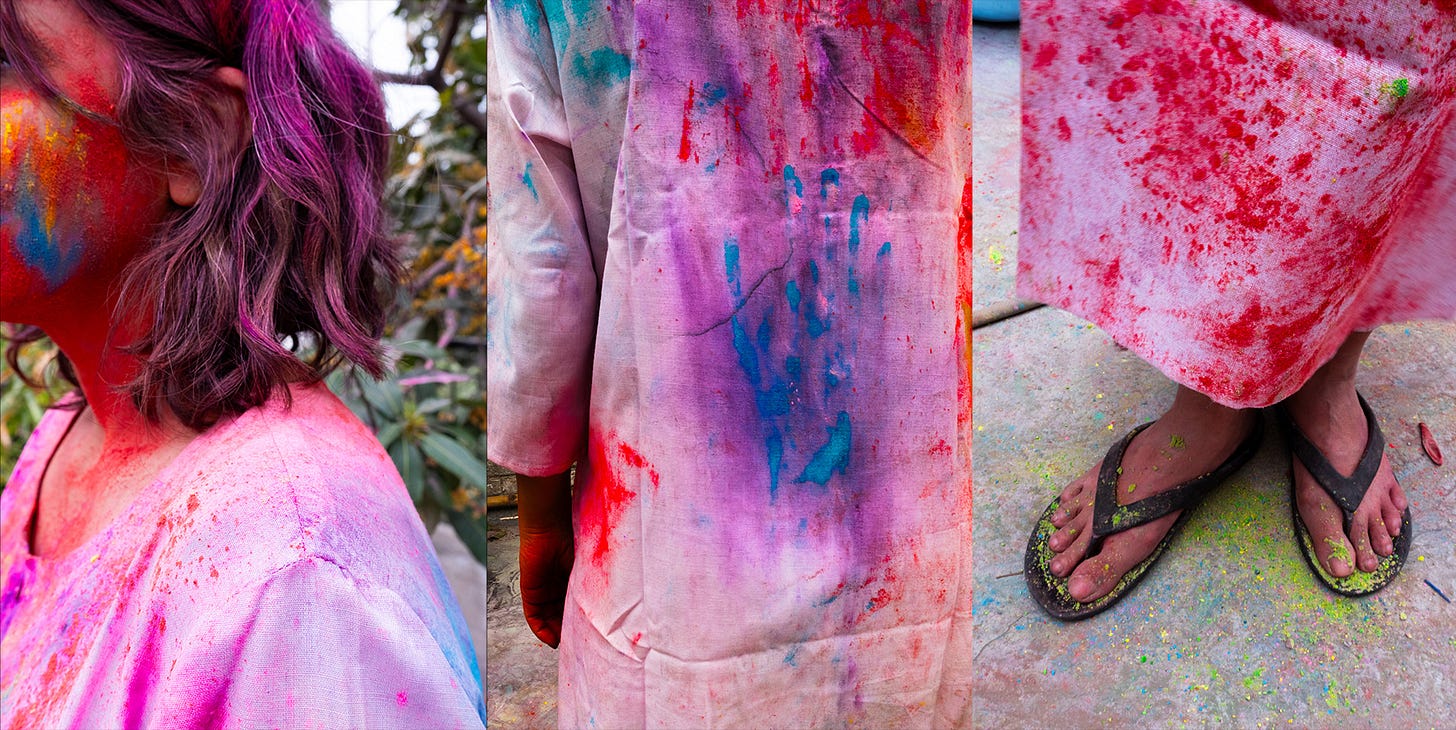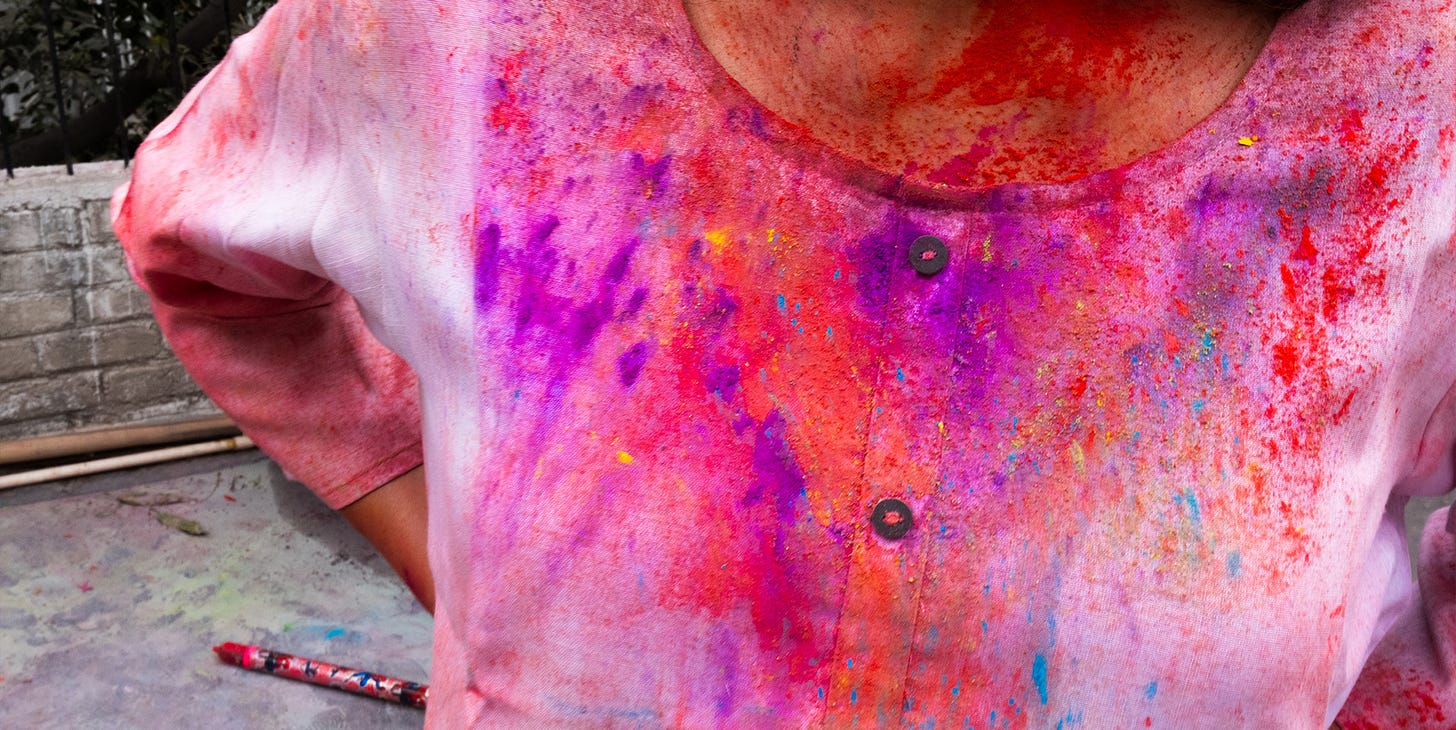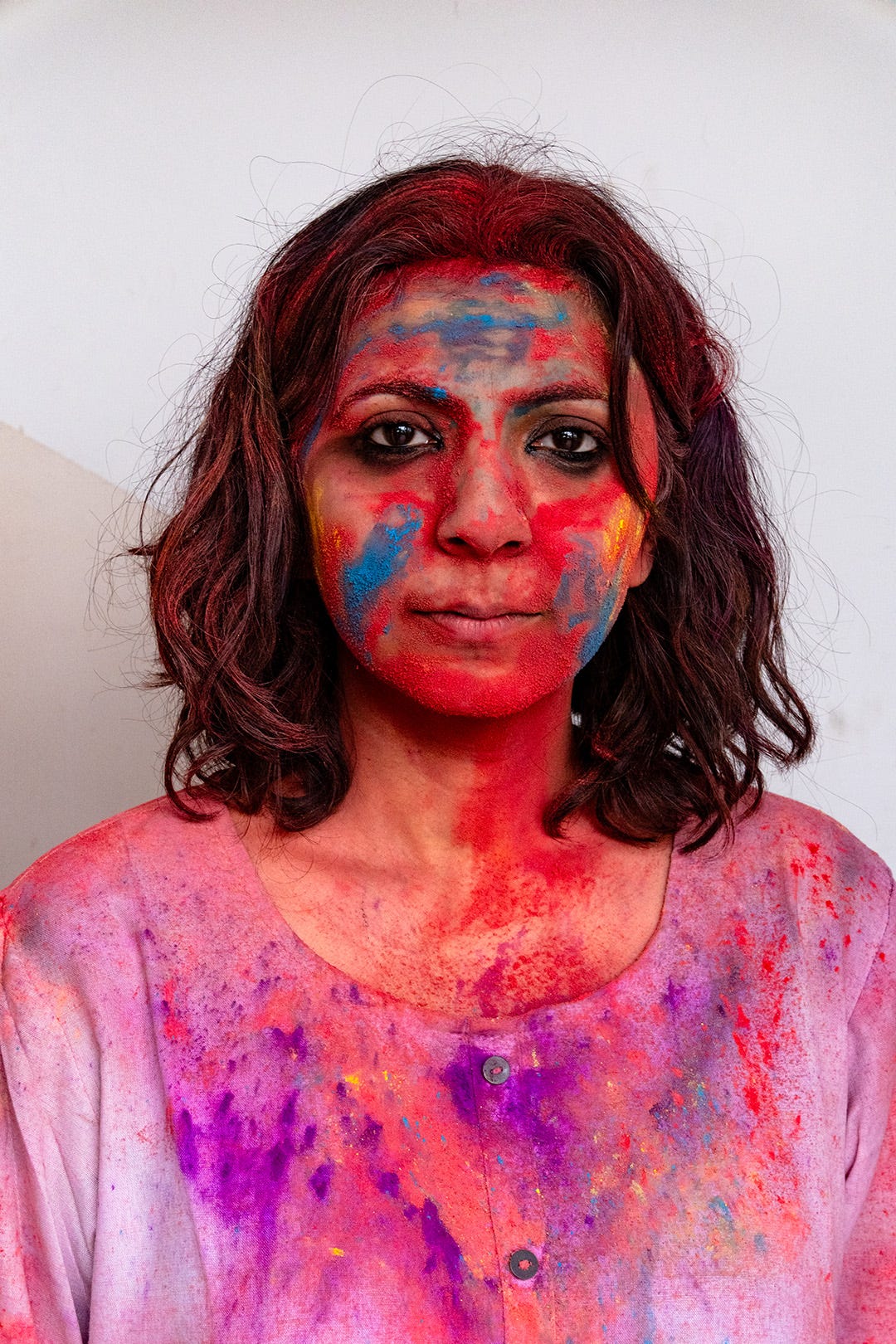This is a special collaboration between an artist, a filmmaker and a photographer.
For this set, I invited my friends, Rintu Thomas (Director-Producer / Black Ticket Films) and Mehedi Rahman (photographer), to take my photo and discuss what consent means to them. The lens is not just mine. The stories are not just ours. It's time we all took responsibility for creating safe spaces for ourselves, not as individuals, but as a collective.
Touch is memory. Some touches are like poetry, light and deliberate, knowing where to land. My mother’s palm against my fevered forehead, its comfort anchoring me to the world. The slight, absentminded weight of a friend’s knee against mine as we sit deep in conversation. Dida’s shurshuri curling over my skin, dissolving wakefulness into the hush of her hands. These are the touches that settle lightly, asking for nothing and leaving no debt behind.
But some touches stay too long. They sink into the skin, like the oily residue of a careless handprint on a wall that was once clean. Like the faint, stubborn stains of colour left behind after Holi. Days later, they emerge—pink ghosts on forearms, yellow traces on collarbones—quiet proof of something that should have vanished, but didn’t.
I often try to trace the moment I became awakened to the ways in which others’ eyes touch my skin and being. Holi reminds me of this. It is the only other time I let myself be drenched in the open, apart from the rain. But the rain is different, it belongs to no one. Even in a crowd, it is mine. I step into it when I choose. It does not watch me as it falls.
Holi is different. The water is also different. Fabric that once obeyed now clings, outlining things I did not offer.
Life has been a slow lesson in the language of boundaries. I've learnt the difference between an embrace and an enclosure, between being adorned and being claimed. And yet, I refuse to fold myself small just to be safe. I will not retreat to dry corners while colour explodes outside me, will not let the joy of open sky and running water be taken from me. I will let the colour find me, the water touch me—but only when I decide. Only when it is welcome. Only when it belongs to me.
Photos & Text: Rintu Thomas
Growing up in Bangladesh, Holi has always been an exotic affair. One I might not have discovered had I not chosen photography as a profession. One has to dwell in the Hindu-majority alleys of old Dhaka to experience something as unique as Holi in a Muslim-majority country.
As a practitioner of “street photography,” I thrive on the candid and unaltered, attempting to capture my fellow humans in their natural state without imposing my presence on the scene. This particular genre of photography is almost anti-consent because as soon as you have made contact, you have made people aware of your presence, thereby giving them the opportunity to present themselves as they want to be seen, and not how you had found them.
The last time I visited old Dhaka to photograph Holi was in 2010, before everyone had TikTok and Instagram in their hands. For the vast majority of the urban middle class, being photographed was a rare experience. When people, young and old, boys and girls, came out to the streets to play Holi, they were not interested in the camera. I, too, was completely intoxicated by the magical ambience of colours, laughter and music.
The Hindu community in old Dhaka is tight-knit. Everyone knows each other, and the divide between their public and private lives is very thin. As a photographer, there is a difference when you’re not imposing. When it’s physical, I know exactly what consent is. With my photographs, the lines blur. When I take beautiful photos of people dancing and just being themselves, it’s for me. If the people I photograph seem uncomfortable, I never publish them.
Photo & Text: Mehedi Rahman
I didn’t know how to say no. I never learnt it because girls and women around me never said no. Instead, I learned how to please people, understand their needs through subtle gestures and ensure that I did not make them uncomfortable. I observed what I saw around me, absorbed and then reenacted. That is naturally how children learn.
I thought this skill would set me up for life. I would host well and be liked by friends and family. And it did, for many years.
Then I became a parent. My daughter’s discomfort triggered memories from childhood that I had long forgotten. She trusted her body and listened to it. I wanted to tell her that she was being rude, but I did not. I wanted to tell her that she must develop social skills, but I held back.
She learnt to say no. She learnt to walk away, be angry, throw tantrums and listen to her body. I observed her with a child-like curiosity, absorbed what I saw and then began to reenact. While she developed her agency, I tried to find mine. When she said no, I mimicked her, rolling the world on my tongue and trying out how it sounded. The liberation I felt was frightening.
When Holi arrived this year, we threw a party. I watched my daughter play with abandon. She asked before putting colour on anyone. She was asked before anyone played with her. She did not say no, even once. As I watched her, I felt a weight lift off my chest. I felt free.
This is consent: to ask and be asked. It is not just a woman’s job to learn to say no. We need to learn this together as a collective. Only then can we create safe spaces for our children and ourselves.
Video & Text: Samira Gupta
Naqab (Mask) explores the many masks I wear as an Indian woman. It is my attempt to unravel, and discover my deep-seated conditioning, biases, strengths and weaknesses, one portrait at a time.
The project will span a year, with one portrait every week.
Head here for the entire series.
If you liked this project, please consider sharing or recommending my publication. It would immensely help a new writer like me reach a wider audience.
I would love to hear from you! Drop in a comment and let me know your thoughts.






This piece resonates so much with me, as it must with so many other women. It's taken me a lifetime to learn to say no and even now it is difficult. Thank you! Your writing is so beautiful and evocative.
Wonderful writing. Some of the prose is so evocative. And I loved your use of shurshuri - one of those tactile, untranslatable words. :)